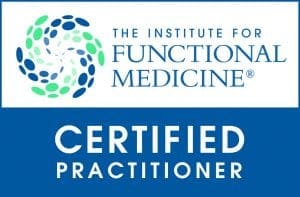Introduction The gut system’s main function is to digest food to be turned into nutrients in the body and excrete the waste out of the body...
Category - Gut and Intestinal Health
Gut and Intestinal Health: The health of an individual’s gut determines what nutrients are being absorbed along with what toxins, allergens, and microbes are being kept out. The gut and intestines are directly linked to the health of the whole body. Intestinal health could be defined as optimal digestion, absorption, and assimilation of food being consumed. However, this is a job that depends on many other factors that can determine a healthy body. More than 100 million Americans have digestive problems and there are two of the top-selling drugs that are for digestive problems, and they run in the billions. There are more than 200 over-the-counter (OTC) remedies for digestive disorders and these can and do create additional digestive problems.
If an individual’s digestion is not working properly, the first thing is to understand what is sending the gut to be out-of-balance in the first place.
From low-fiber and high-sugars to high-calorie diets can cause all the wrong bacteria and yeast to grow in the gut and damages the delicate ecosystem in the intestines.
While overuse of medications that damage the gut or even block normal digestive function like acid blockers (Prilosec, Nexium, etc.), anti-inflammatory medication (aspirin, Advil, and Aleve), antibiotics, steroids, and hormones can cause gut dysfunction.
Undetected gluten intolerance, celiac disease or low-grade food allergies to foods such as dairy, eggs, or corn can even cause gut problems and if it is not treated can become chronic.
From chronic low-grade infections to toxins all the way to stress can cause the gut to become imbalanced and change the normal bacteria.
When patients go to see their primary care doctors, visits for intestinal disorders are among the most common trips. Most doctors do not recognize or know that digestive problems can wreak havoc in the entire body, thus leading to allergies, arthritis, autoimmune disease, rashes, acne, chronic fatigue, mood disorders, autism, dementia, cancer, and more.
By having a proper gut and intestinal health is absolutely central to a person’s health since it is connected to everything that happens in the body.
Introduction The gut is home to many bacterias that help out the body by digesting the food that a person eats, and excretes the waste out of the...
Introduction The brain’s main function in the central nervous system is to send out neuron signals all throughout the body. What this does is...
Introduction The body’s microbiome is a host of trillions of microorganisms that help form an ecosystem that interacts with the entire body...
Introduction The body has specific roles for each of the systems that are inside. The musculoskeletal system makes sure that the body is moving...
Ankylosing Spondylitis was first described two centuries ago and is the most common form of spondyloarthritis. Indeed, the term spondyloarthritis...
Introduction In today’s podcast, Dr. Alex Jimenez, Health Coach Kenna Vaughn, and Astrid Ornelas discuss a variety of natural treatment methods...
Introduction On today’s podcast Dr. Jimenez DC, health coaches Adriana Caceres and Faith Arciniaga, and nutritionist Ana Paola Rodríguez Arciniega...


















